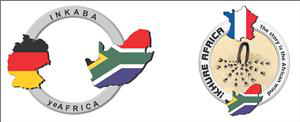Speaker
Mrs
Annah (obo Kristen Ellis) Mabidi
(AEON-ESSRI)
Description
Hydraulic fracturing or fracking is an extraction technique that is used to extract gas from rocks of low permeability. A number of companies have been either applied for, or been granted Exploration Rights for fracking in the Karoo. Shell’s application area is in the magisterial districts of Aberdeen, Beaufort-West, Carnarvon, Graaff-Reinet, Middelburg, Murraysburg, Noupoort, Richmond and Victoria-West and covers an area of approximately 30 000 km2. Fracking has recently received much publicity due to concerns over the environmental, social, human health and aesthetic risks associated with this unconventional method of gas extraction. The objectives of this study are to survey the proposed fracking areas and evaluate the flora and vegetation of the area, highlighting Species of Conservation Concern. Furthermore, the study will investigate ecophysiological responses of Karoo plants to exposure to fracking fluid, with particular emphasis on phreatophytes. Boscia albitrunca (Burch.) Gilg & Gilg-Ben. will be used as a representative of phreatophytes, but examples of all the major life forms in the study area will be used. This study forms part of the AEON-ESSRI Baseline Research Program at NMMU that is undertaking a technical evaluation and socio-economic analyses of shale gas in the Eastern Cape. The area to be affected by fracking contains mostly Albany Thicket and Nama-Karoo and preliminary research indicates a number of Species of Conservation Concern at risk in these areas should fracking go ahead.
Primary author
Ms
Kristen Ellis
(Nelson Mandela Metropolitan University)
Co-authors
Prof.
Eileen Campbell
(Nelson Mandela Metropolitan University)
Prof.
Maarten de Wit
(NMMU AEON)

